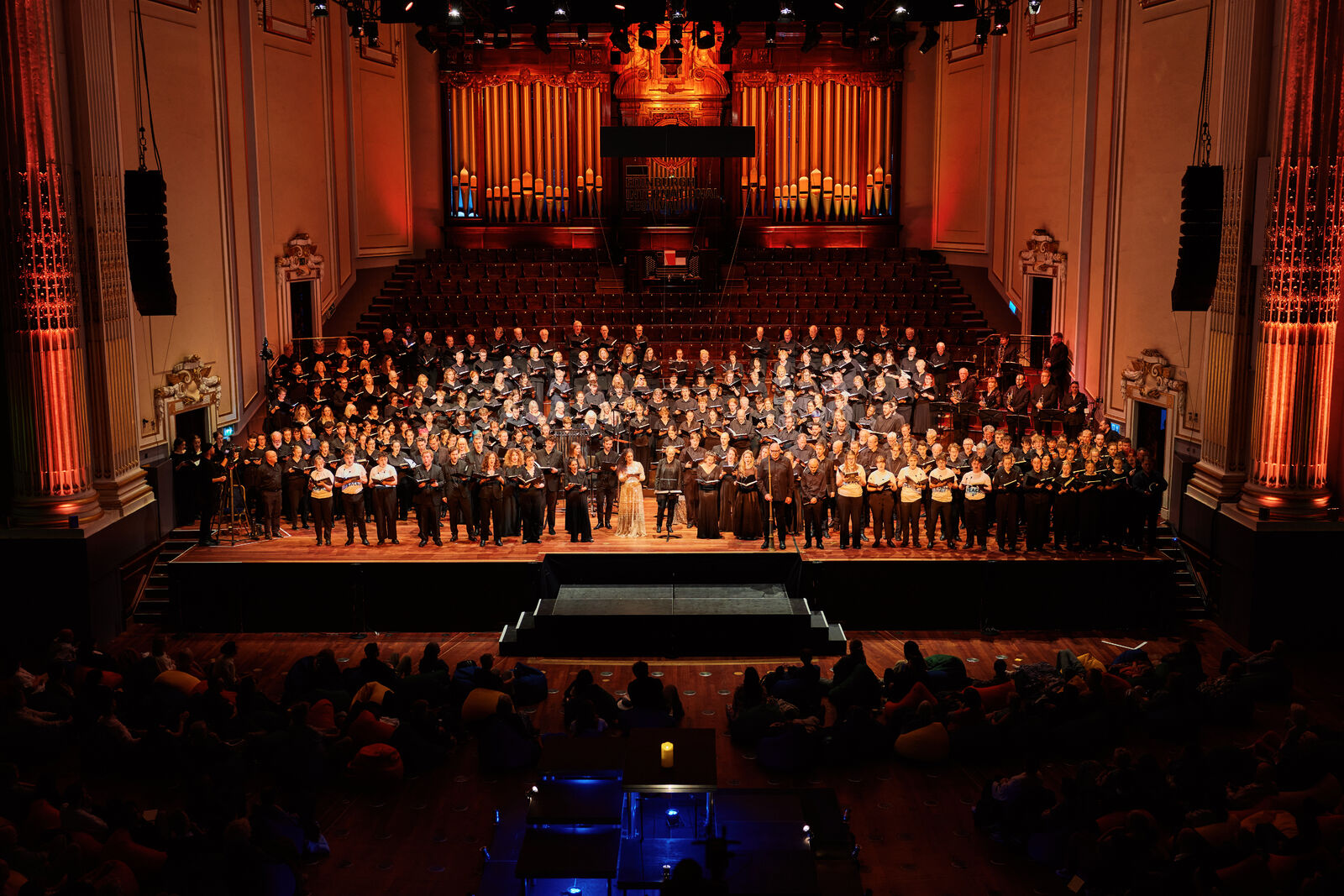The Edinburgh International Festival’s opening concert is usually two hours. This year’s opener, The Veil of the Temple, is scheduled to last for eight, with the survivors congregating in the stalls at the end to discuss their experience.
Having slid off a beanbag and stabbed myself with a pair of keys, I didn’t quite make it to the end. Instead, I hobbled away regretting my lack of stamina (and a first aid kit), but was nonetheless moved by the musical experience.
Sung in five different languages and drawing on many of the major world religions, performing John Tavener’s magnum opus represents a brave and exciting choice to program, and a unique opportunity for those involved.
The work itself begins in a very sober and dull fashion, and as it repeats the same material, with increasingly complexity, it doesn’t get any more interesting. It’s extraordinarily tedious. But, also, has moments of extreme beauty – so listening to it is no bad thing.
Tavener saw The Veil of the Temple as an attempt to restore the sacred imagination, seeking out the truth across religious traditions and spiritual practices in a journey from darkness to light. In that sense, it’s fits perfectly with EIF 2025’s theme of “The Truth We Seek.”
However, in its rigid formality, this piece of music feels as if it was written by someone who admired religion intellectually, from the outside, rather than emotionally, from the inside. Faith is a messy dramatic business; we turn to it in times of trouble, when we are frightened, when we are grief-stricken, when we are in pain or dying. We may aim for respectful reverence or transcendent ecstasy, but what we more often get is passion and discomfort.
Like pilgrims looking for a pit-stop, within seconds of the concert beginning, the stalls are in a state. Audience members sitting awkwardly on their beanbags, struggling to adjust them, wondering where to put their stuff and their legs. A few, impressively, even manage to fall asleep before the end of the first soprano solo.
Arranged into eight cycles, each cycle, begins with a candle being slowly marched to a podium in the stalls and placed in a black box, before a soprano starts to sing. Unfortunately, the candle is brought in to complete silence, which the audience took as a good time to shift on their beanbags and chat to their companions. This completely ruins the effect, with a few souls hissing ‘shush’, to no avail, as the performers awkwardly wait to begin. This is the kind of humbling thing that does happen as humans reach for the eternal, but we wouldn’t be human if we didn’t try.
Conducted by Sofi Jeannin, Monteverdi Choir, Edinburgh Festival Chorus, National Youth Choir of Scotland, and Royal Scottish National Orchestra are flawless. The talent and dedication to sing so achingly and play so earnestly for eight hours while the audience faff about getting tea and biscuits, is admirable.
As one audience member said to me in one of the three official intervals, “no one is going to do this again anytime soon.” It’s an ambitious effort and perfecting it with the unavoidable risk of appearing somewhat silly, is close to divine.


Comments